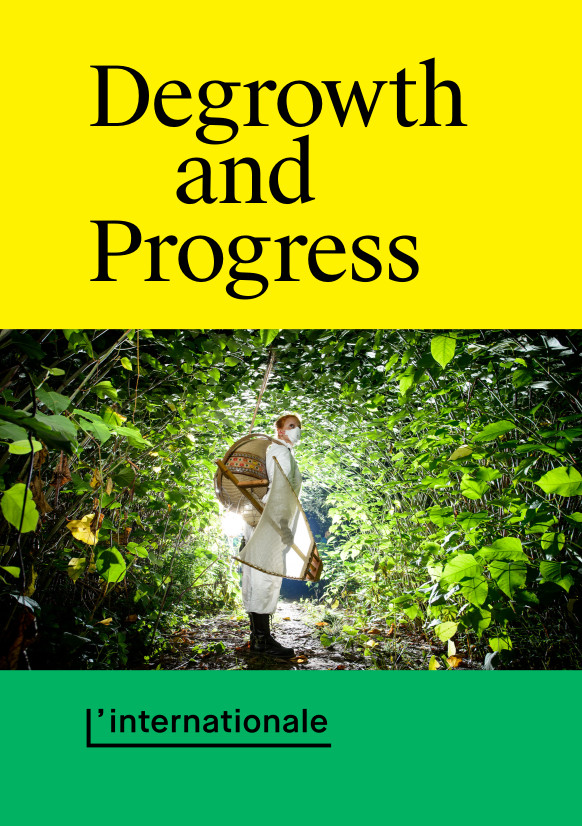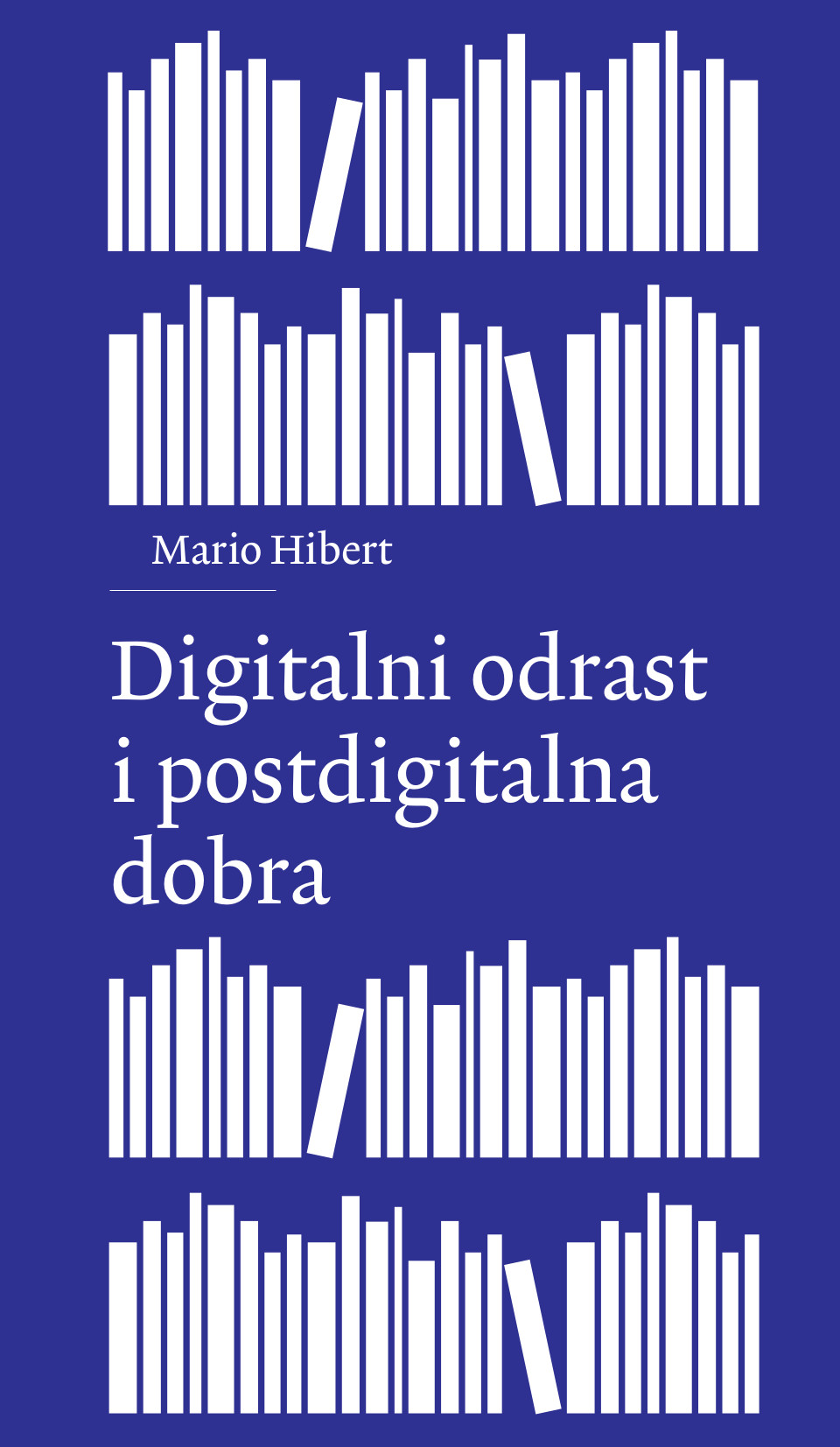Sara Buraya Boned, Ida Hiršenfelder (eds.): Degrowth and Progress (2021)
Filed under book | Tags: · art, degrowth, progress

“Degrowth and Progress is the second in a series looking at other potential narratives for mapping our current landscape through redefining the social, political and economic terms of engagement. Following the e-publication Austerity and Utopia, L’Internationale Online presents a second collection of interventions to think through two apparently distant concepts. Artists, thinkers and researchers were invited to reflect on a dissimilar pair of themes as fertile ground for thought and proposition. With this new issue, we would like to pursue a path of reflection to interrogate the ambivalence of a possible progression of degrowth, and attempt to stage a hybrid scenario of speculative thought and action. This collection draws upon the complexity of ethical, ecological and political frameworks and reveals other perspectives on the current crisis through critical essays, storytelling, science fiction, biomorphic design, audiovisual traces of artistic practices and allegorical maps. Progress was the firstborn of modernity, a major promise of continuous development towards the perfection of ‘humankind’. But progress in whose name? To whose benefit? With the exclusion of whom? Progress towards what kind of model? The notion of progress, besides being Eurocentric and linked to colonialism, has been the ideological framework for liberalism itself. The ideal of a continuous, progressive and desirable advancement of civilisation has been reframed in recent decades with ‘sustainable development’. But isn’t sustainability a concept far too simplistic to be able to address real questions of poverty, exploitation, segregation, congestion, depletion of land, desertification, terraforming, or the mass extinction of species? Could we think in a different direction about progress?”
With essays by Vincent Liegey, Cristina Cámara, Vladan Joler, Ajda Pistotnik, Paula Pin Lage, Marta Echaves, and Ida Hiršenfelder, an interview with Silvia Federici by Sara Buraya Boned, and a conversation between Monica Narula and Nataša Petrešin-Bachelez moderated by Corina Oprea.
Publisher L’Internationale Online, 2021
Creative Commons BY-NC-SA License
ISBN 9789151931708
167 pages
PDF, PDF (15 MB)
EPUB, EPUB (16 MB)
Mario Hibert: Digitalni odrast i postdigitalna dobra: kritičko bibliotekarstvo, disruptivni mediji i taktičko obrazovanje (2018) [Croatian]
Filed under book | Tags: · commons, data, degrowth, library, media literacy, postdigital, shadow library, tactical media, theory

“Knjiga tematizira ideje kritičkog bibliotekarstva, specifičan oblik profesionalne kulture zasnovan na konceptu društvene odgovornosti. Propitivanjem kredibiliteta javne misije bibliotekarstva u umreženom društvu podcrtana je važnost kritičke medijske pismenosti posebice kritičkih studija Interneta. Poseban akcenat je stavljen na aspekte informacijske i komunikacijske komodifikacije, artikulaciju epistemoloških i političkih prijepora podatkovnog društva (datafied society) kao i upravljanje digitalnim zajedničkim dobrom koje u svjetlu teorije odrasta (degrowth) bibliotekarstvu nudi konstruktivni imaginarij za socijalnu reorganizaciju tehnologije. ”
Publisher Multimedia Institute & Institut za političku ekologiju, Zagreb, September 2018
Basic series
Anti-copyright
ISBN 9789537372484, 9789535893868
152 pages
PDF (updated on 2018-12-10 to a newer version with minor changes)
Comment (0)The Birth of Digital Populism: Crowd, Power and Postdemocracy in the 21st Century (2015) [EN, IT]
Filed under book | Tags: · capitalism, degrowth, democracy, internet, italy, politics, populism, power, web

“The Five Star Movement led by Grillo & Casaleggio had an unexpected success in the Italian general elections of February 2013, deeply disrupting the panorama of Italian politics. This book seeks to explore some of the features characterising the emergence of a new political phenomenon: digital populism. We asked Italian and English thinkers from different political and disciplinary backgrounds to contribute to an analysis of some fundamental points behind the rise of populism and the digital relations between masses, power and democracy at the dawn of the twenty-first century. The book features nine interviews carried out between May 2013 and February 2014 with Luciana Parisi, Tiziana Terranova, Lapo Berti, Simon Choat, Godani Paul, Saul Newman, Jussi Parikka, Tony D. Sampson and Alberto Toscano.”
Published in January 2015
Creative Commons Attribution-NonCommercial-ShareAlike 4.0 International License
84 pages
Five Star Movement on Wikipedia
Editors
PDF: English, Italian
Issuu: English, Italian

